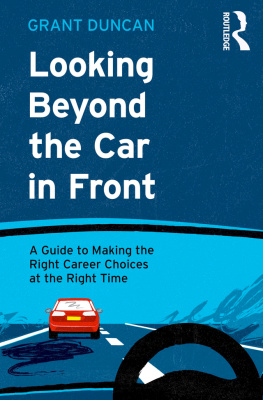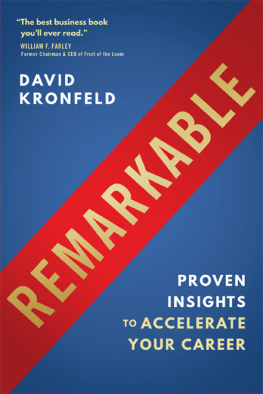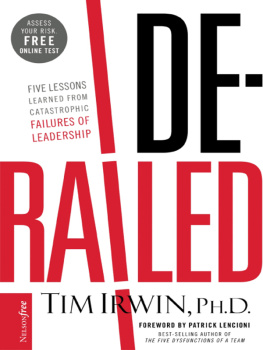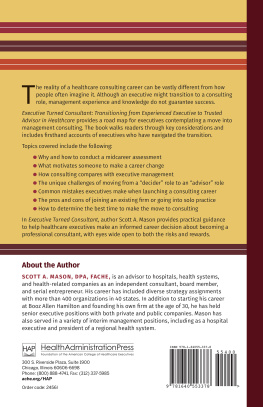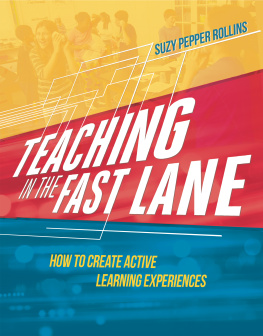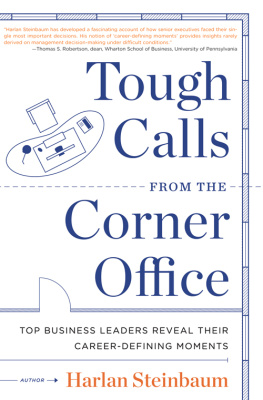Losing ItBehaviors and Mindsets that Ruin Careers
Lessons on Protecting Yourself from Avoidable Mistakes
Bill Lane
Vice President, Publisher: Tim Moore
Associate Publisher and Director of Marketing: Amy Neidlinger
Executive Editor: Jeanne Glasser Levine
Editorial Assistant: Tamara Hummel
Development Editor: Russ Hall
Operations Specialist: Jodi Kemper
Assistant Marketing Manager: Megan Graue
Cover Designer: Alan Clements
Managing Editor: Kristy Hart
Project Editor: Betsy Harris
Copy Editor: Krista Hansing Editorial Services, Inc.
Proofreader: Leslie Joseph
Senior Indexer: Cheryl Lenser
Compositor: Nonie Ratcliff
Manufacturing Buyer: Dan Uhrig
2012 by Bill Lane
Published by Pearson Education, Inc.
Publishing as FT Press
Upper Saddle River, New Jersey 07458
FT Press offers excellent discounts on this book when ordered in quantity for bulk purchases or special sales. For more information, please contact U.S. Corporate and Government Sales, 1-800-382-3419, .
Company and product names mentioned herein are the trademarks or registered trademarks of their respective owners.
All rights reserved. No part of this book may be reproduced, in any form or by any means, without permission in writing from the publisher.
Printed in the United States of America
First Printing May 2012
ISBN-10: 0-13-304024-0
ISBN-13: 978-0-13-304024-1
Pearson Education LTD.
Pearson Education Australia PTY, Limited.
Pearson Education Singapore, Pte. Ltd.
Pearson Education Asia, Ltd.
Pearson Education Canada, Ltd.
Pearson Educacin de Mexico, S.A. de C.V.
Pearson EducationJapan
Pearson Education Malaysia, Pte. Ltd.
Library of Congress Cataloging-in-Publication Data
Lane, Bill, 1944
Losing it : behaviors and mindsets that ruin careers : lessons on protecting yourself from avoidable
mistakes / Bill Lane. -- 1st ed.
p. cm.
ISBN 978-0-13-304024-1 (hardcover : alk. paper)
1. Leadership. 2. Management--Psychological aspects. 3. Business ethics. I. Title.
HD57.7.L364 2012
658.4'092--dc23
2012008147
For Beth. Forever. And for our crown jewels:
Bill, Regan, and Tom.
Acknowledgments
I would like to express my deep appreciation to the many important peoplesome unnamedwho spent their valuable time with me, not just out of friendship, but in the hope that some of their insights and experiences might help someone, someday, avoid losing it in the life game of leadership that they have chosen to play.
About the Author
Bill Lane is a native of Brooklyn, New York, and has degrees from Niagara University and Northern Arizona University. He served as a Green Beret officer in Vietnam in 196869 and later worked as a congressional liaison officer and speechwriter at the Pentagon for seven years. He was appointed Manager of Executive Communications at General Electric and spent nearly 20 years as Jack Welchs speechwriter; he retired in 2002.
Bills first book, Jacked Up: How Jack Welch Talked GE into Becoming the Worlds Greatest Company, was named one of the Best Business Books of the Year by Strategy+Business.
He writes and lives in Easton, Connecticut.
Introduction
Only a fool learns from his own mistakes. A wise man learns from the mistakes of others.
Bismarck
If this book ever sees the light of other eyes than mine, I can guarantee that someone will ask, What made you write it? As the nightmarish beast-villain in No Country for Old Men verbally smirked, They all say that....
I wrote it not only to satisfy a not-totally-justified, and never satisfied, ego, but to see if I could help people with observations gleaned from more than 30 years in government and industry on what accelerates personal success and what kills it.
I began this book with what I thought was a catchy and appropriate working title, Trainwrecks and Turnarounds, and set forth with a vision of doing good by painting accurate, semitragic sketches of good, successful, fast-track people whose careers imploded or were bombed into oblivion by character or personality flaws that they failed to correct. To balance these dismal accounts, I intended to showcase some inspirational stories of those who got off the canvas and soared to new heights of success and glory by recognizing their flaws and weaknesses, correcting them, and moving on.
I thought that made for a neat and helpful premise for my workbut it didnt hold up very long in the cruel light of introspection and after conversations with more than a few brilliant and successful people. Oh, the train wreck analogy was fertile ground for mining; the carcasses and debris of losers who did not have to be losers are all over the place. People who used to fly into Harry Truman Airport in the Virgin Islands, as I did every now and then as both a pilot and a passenger seated in the back, used to advise their friends not to look out the window until after landing and taxi-out. The approach was tricky, and both sides of the runway had burned-out wrecks and scattered debris marring the landscaping. Whether this tragic junk was left there because of bureaucratic inertia or as a warning was never clear, but the cockpit was usually quiet until the plane stopped safely.
The wreckage was a graphic and effective warning. That is what I hope this book to be, too: both graphic and effective.
The seed for this book was planted in my mind eight years ago. I had been firedIm sorry, I had retiredfrom General Electric, and at the tender age of 57, I set out to make my way in the world. I intended to enable my three high-school kids and young first wife to some day financially step over my decaying, martini-saturated carcassfresh from yet another pathetic performance on the golf courseand move on.
So I set out to become a freelance speechwriter, a gig that pays well when you get work. Something Ive been successful at, having had my craft forged and tested in the flames of 20 years working with Jack Welch of General Electric, probably the greatest and most demanding CEO in business history.
One of my early clients was a guy named Jack Shaw, an engineer who was quite older than I was; hes now the retired president and CEO of Hughes Electronics in southern California. Shaws speech was for a graduation at the University of Maryland, and he agreed to a quiet, country-boy, engineer-type speech.
In my view, the only good graduation speeches are the ones that sent the pimply-faced sex maniacs off into the world with at least one thought they would remember 20 years lateror at least 20 minutes later. Most graduation speeches do neither.
I dont remember the message of my college graduation speaker, or even who he or she was. Im not even sure I was present. I dont know, maybe I was.
To be fair to this mysterious speaker, I was probably hung over (if I was there). I think my parents were there. What Im telling you is, of course, total hyperbole. Of course my parents were thereand so was I. However, I truly have no idea who gave the speech. But if something was said that amounted to any insight or interesting perspective, I probably would have remembered it.
One speech I will never forgetalthough I was not there to hear it, of coursewas General MacArthurs speech to the cadets at West Point. It combined beautiful, lyrical English with solid advice on cultivating in oneself a leadership code that would advantage anyone, in any lifetime endeavor:
They teach you to be proud and unbending in honest failure, but humble and gentle in success; not to substitute words for action; not to seek the path of comfort, but to face the stress and spur of difficulty and challenge; to learn to stand up in the storm, but to have compassion on those who fail; to master yourself before you seek to master others; ...to reach into the future yet never neglect the past; to be serious, but never take yourself seriously....



